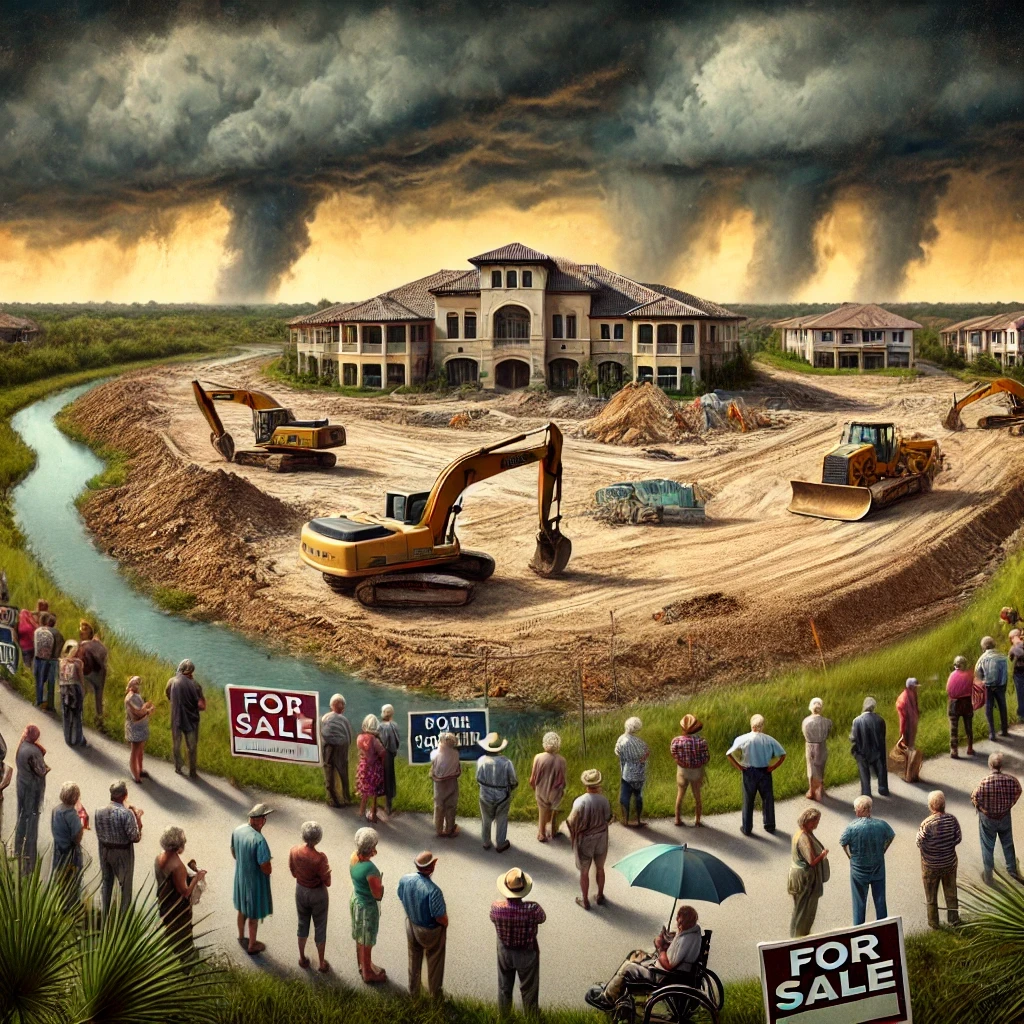Pinellas County, Florida, is grappling with a wave of outrage after it was revealed that the beloved Tarpon Woods Golf Course in Palm Harbor was quietly sold two years ago without residents’ knowledge. The sale of the 168.4-acre golf course to Tarpon Woods Properties LLC has ignited a fierce debate over the future of the land and the community’s fight to preserve their property values, protect local wildlife, and prevent large-scale development.
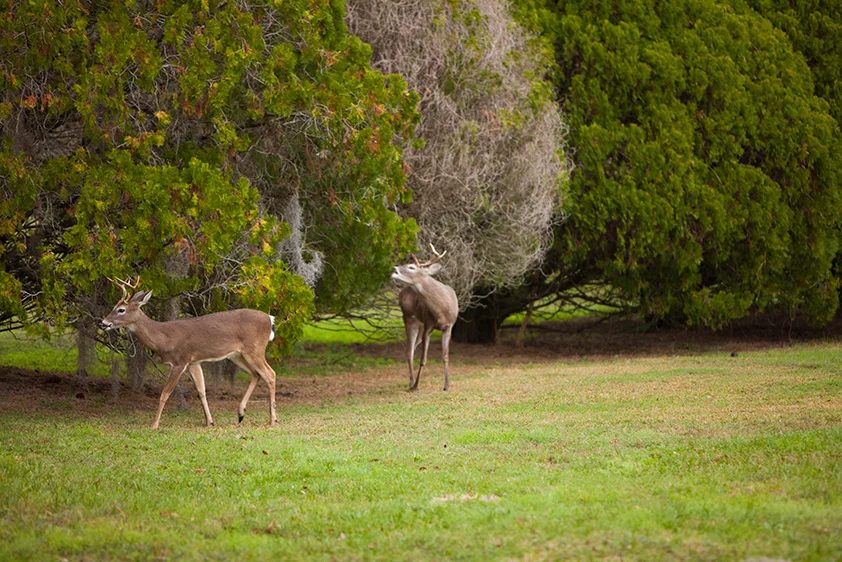
The new owners intend to transform part of the golf course into a wetlands mitigation bank while also filling in ponds and preparing the land for potential future residential development. Residents are alarmed by the lack of transparency surrounding the sale and the ecological and social impact these changes could bring to their neighborhood.
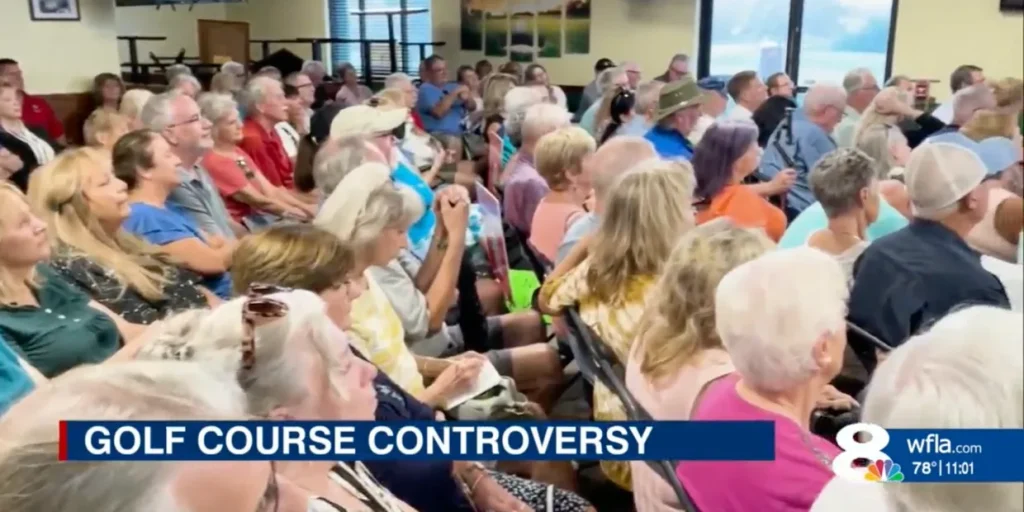
A Community in the Dark
The golf course, once owned by Jan Stephenson’s Crossroads Foundation, was sold for $1.65 million in 2022. Yet the sale went unrecorded with the Pinellas County Property Appraiser’s office, leaving the community unaware of the ownership change until recently. Mike Twitty, the county’s property appraiser, confirmed that no “change of ownership” form had been filed, meaning the sale wasn’t reflected in public records.
The new owners continued to benefit from a tax exemption meant for non-profit organizations. This resulted in a tax lien of over $70,000 in penalties, adding another layer of controversy to the situation. The lack of transparency has left residents feeling blindsided and distrustful of both the previous owners and the new developers.
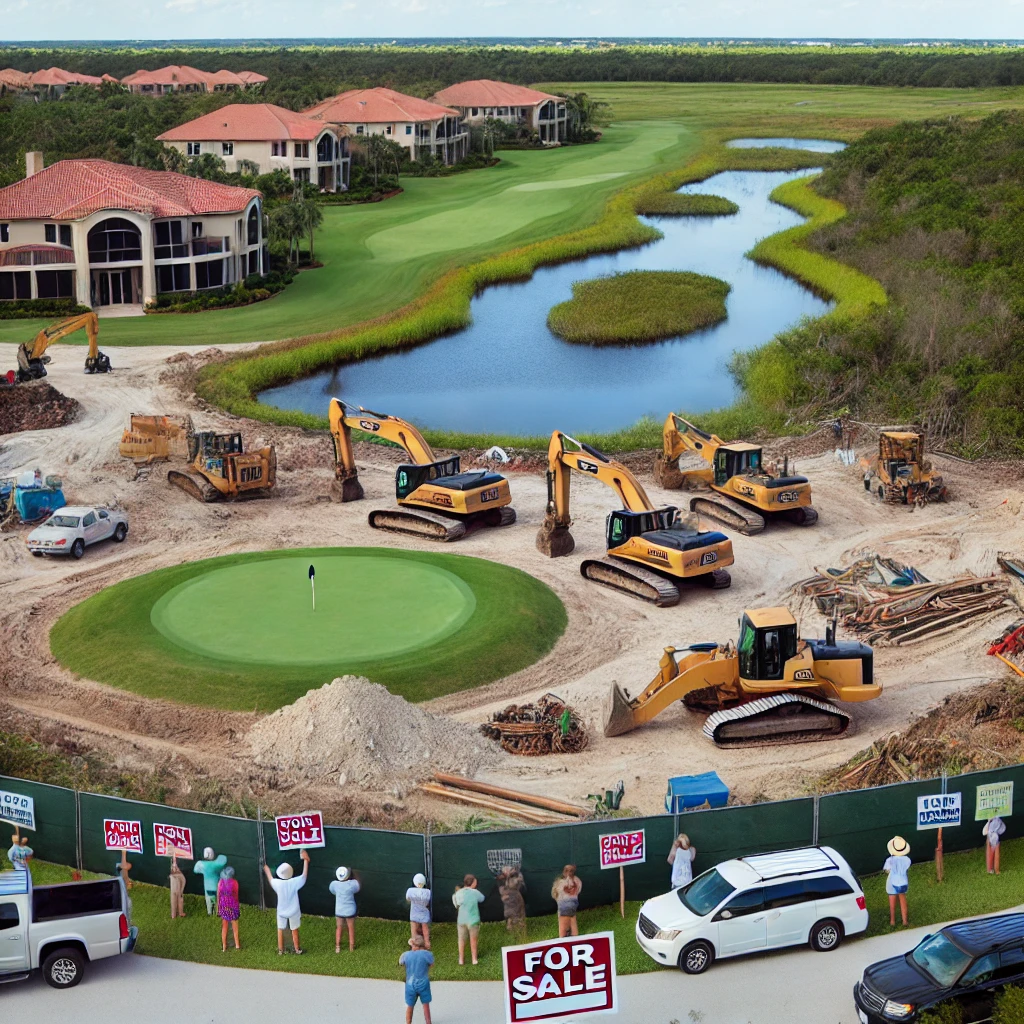
Outrage Over Potential Development
While the developers have publicly stated their intent to turn the land into a wetlands preserve, residents fear the long-term plan may involve residential development that could drastically alter the character of the neighborhood. At a contentious county meeting on August 28, 2024, the developers presented their proposal to create the Brooker Creek Mitigation Bank. However, they sidestepped many concerns raised by residents, such as the potential for additional housing units, flooding risks, and the impact on local wildlife.
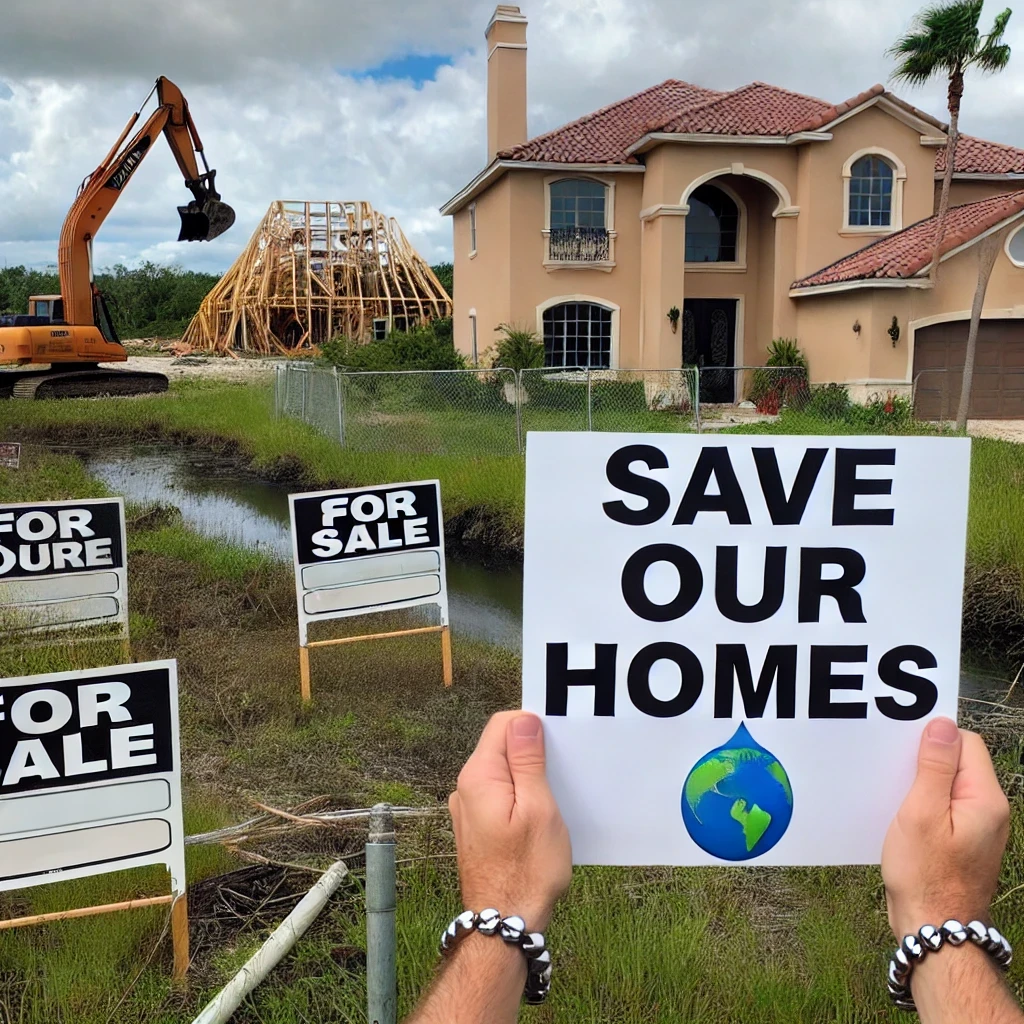
Organizer Bill Nobles, leader of the Save Tarpon Woods movement, voiced the community’s concerns: “It’s going to completely disrupt and destroy the ecosystem and increase demand on our infrastructure that’s already over-taxed. Why did you lie to us? Why did you go this route?”
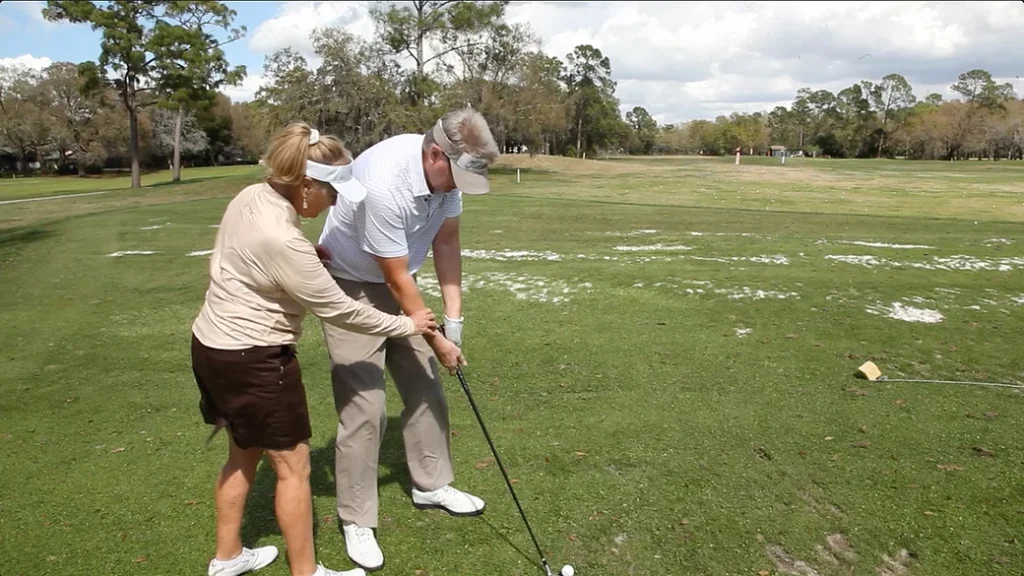
The developers’ vague responses only deepened the community’s skepticism. Kyle Parks, a spokesperson for the LLC, would not confirm whether residential units would eventually be built, leading to fears that the ponds filled in for the wetlands bank could later be used to facilitate housing development.
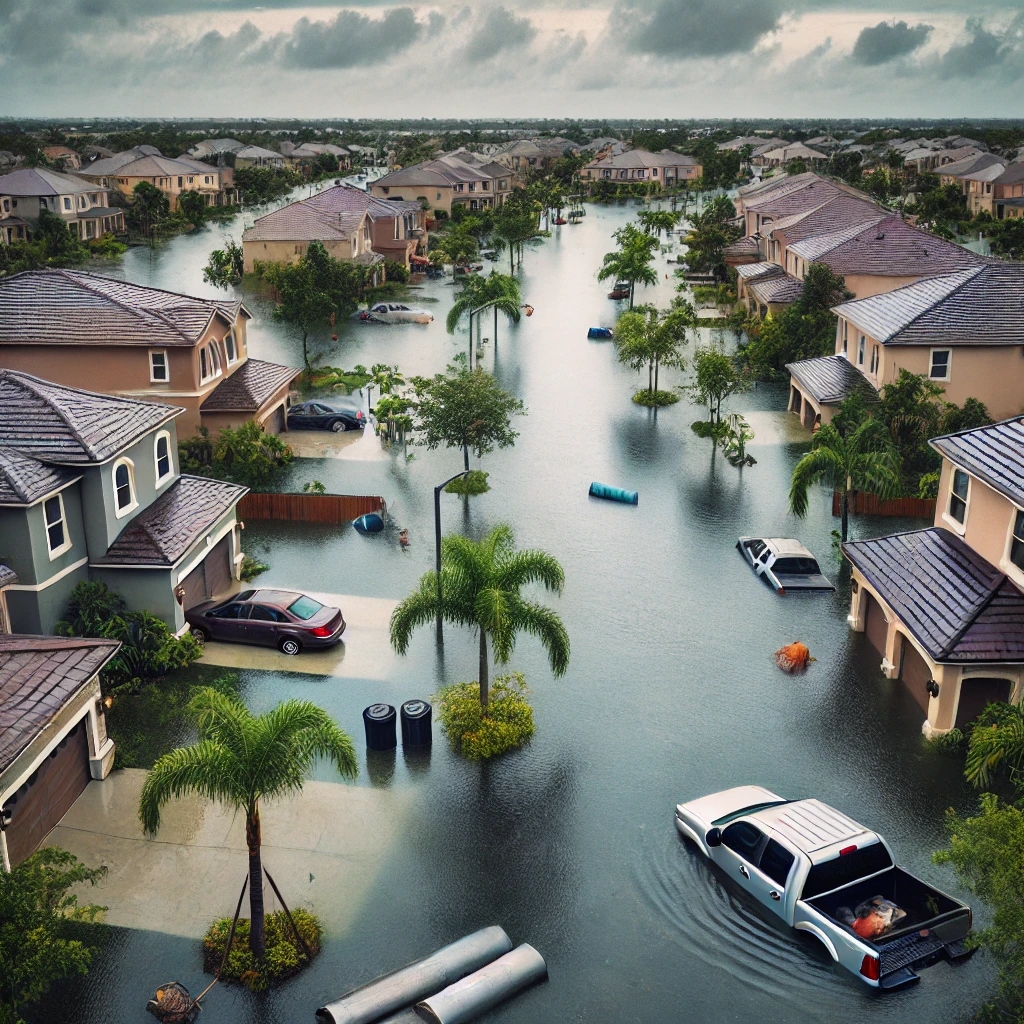
Environmental and Infrastructure Concerns
Residents are also raising alarms about the potential environmental impact of the proposed changes. The ponds on the property are crucial for drainage and flood control, and many fear that filling them could result in increased flooding and a loss of crucial wildlife habitat. Endangered species like the Florida Panther and Wood Stork, as well as alligators and other local wildlife, depend on the area for survival.

“The FACT is that the current ponds provide substantial flooding relief for homeowners,” stated one resident in meeting notes. “The proposed filling will seriously compromise drainage capabilities and property values.”

Another major concern is the scale of the excavation project, which would involve removing over 242,000 cubic yards of dirt — approximately 15,000 dump truck loads — from the golf course, which would significantly increase traffic and congestion on local roads.

A Flawed Process and Possible Conflicts of Interest
Further fueling the community’s outrage are allegations of conflicts of interest and improper handling of the sale and development process. The developers held a last-minute meeting with residents to fulfill a requirement in their permit application to the Southwest Florida Water Management District (SWFWMD). However, many residents feel the meeting was a “bait and switch,” designed to conceal the true scope of the development plan.
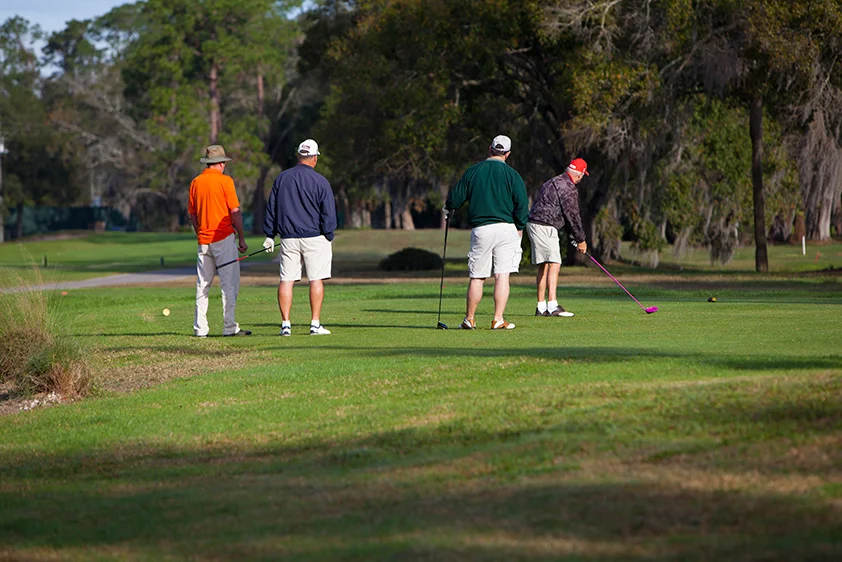
Concerns have also been raised about Ed Armstrong, a member of the SWFWMD Governing Board, who is associated with a law firm that represents developers involved in similar projects. Residents are calling for Armstrong’s recusal from any involvement in the Tarpon Woods development review, citing a potential conflict of interest.
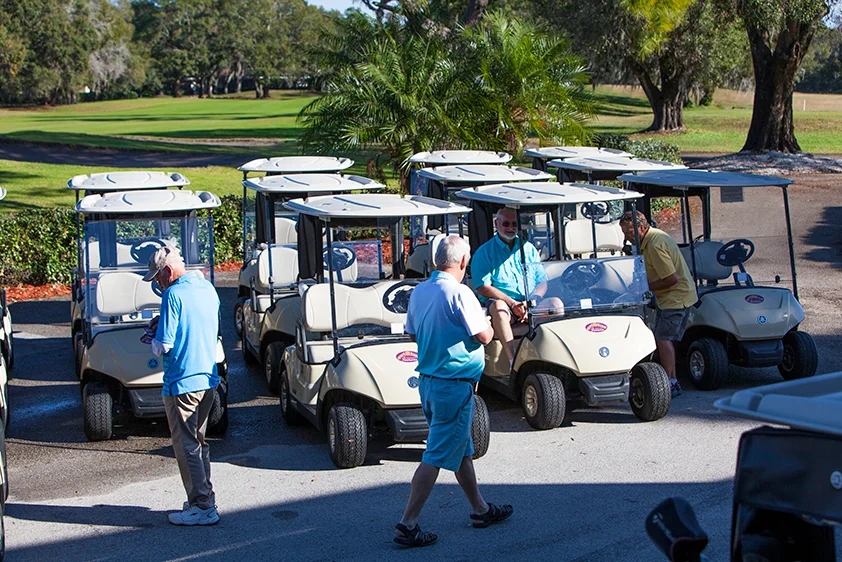
Organizing for Action
The community has not remained idle in the face of these developments. Save Tarpon Woods, a grassroots movement, has organized protests, meetings, and petitions to pressure local, state, and federal agencies to take a closer look at the project. They are calling on the SWFWMD, Pinellas County Development Review Committee, and other regulatory bodies to halt or at least reconsider the project in light of its potential impact on the community and environment.

The group has emphasized the need for residents to stay engaged and attend all upcoming meetings, particularly those involving the approval process for the wetlands bank. Additionally, they are urging neighbors to sign a petition and volunteer in efforts to notify others of the proposed development.

